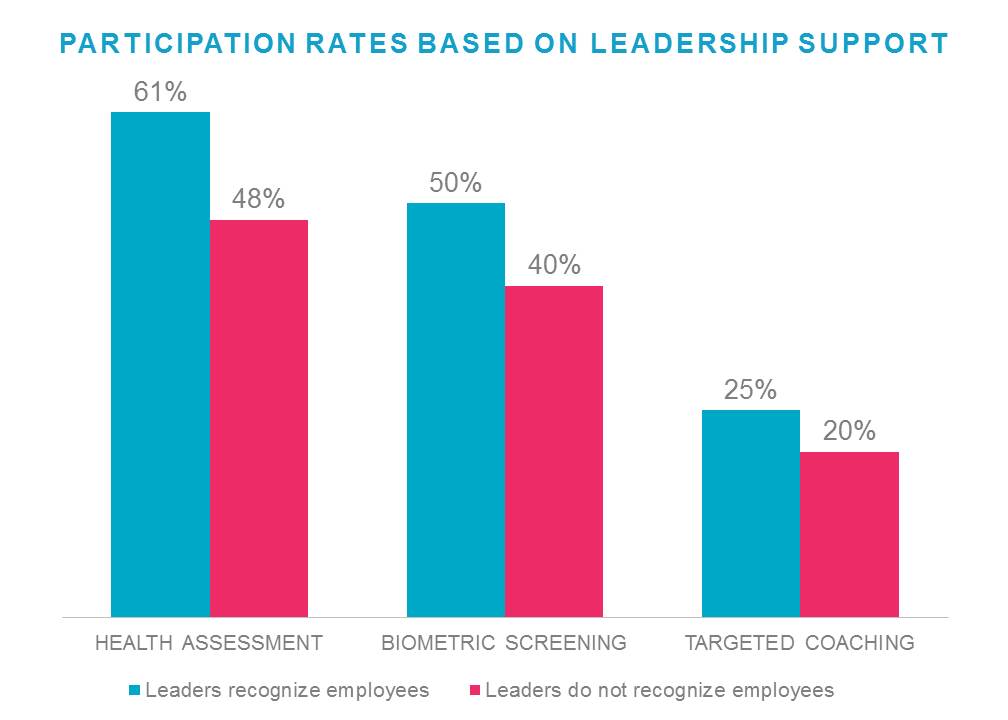Money Isn't Everything: Engaging Employees in Their Well-being
 (c) Portra Images
(c) Portra Images
It’s clear that financial incentives can motivate many employees to take important steps that could lead to better health. But an analysis of data collected through the HERO Health and Well-being Best Practices Scorecard in Collaboration with Mercer© provides evidence that other levers for building engagement that don’t require hard dollars can be surprisingly effective. At the top of the list? Leadership support.
When leaders publically recognize employees for their achievements in improving health and well-being, and when they themselves participate in programs, average participation rates are notably higher across three key programs (health assessments, biometric screenings, and coaching). Asking participants for feedback in developing the company’s well-being strategy is also associated with higher participation rates.

- Other practices that were associated with higher participation include:
- Providing multiple modalities to access programs
- Using branded communications to promote programs
- Developing wellness champion networks
- Incorporating social elements into programs
The majority of employers that have completed the HERO Scorecard and provided participation rates already use financial incentives. But the study’s author, Mercer’s Elissa Rosenbaum, examined a small group of employers that have achieved high participation rates with either no financial incentives or low incentives ($100 or less annually) and found a high prevalence of the non-financial strategies listed above, along with group goal setting or activities with a common goal; and competitions or challenges.
In looking at the HERO Scorecard data over time, we’ve seen growth in the percentage of respondents reporting that company leaders actively participate in company health and well-being programs – from 46% in 2011 to 53% in 2016. If you have responsibility for your company’s programs, why don’t you try to keep that trend moving in the right direction by sharing this information with leadership? Knowing how much influence their participation could have might be the just the nudge they need to take action to improve their own health.
Check out the full article, which is posted on the HERO website. HERO – the Health Enhancement Research Organization – is a national non-profit dedicated to identifying and sharing best practices in the field of workplace health and well-being. Mercer has worked closely with HERO to bring employers the HERO Scorecard since 2008, and we’ll be at the HERO Forum in Phoenix starting September 12. The theme this year is “Engagement and the Emerging Workforce.” Hope to see you there!
Go to full article: hero-health.org
